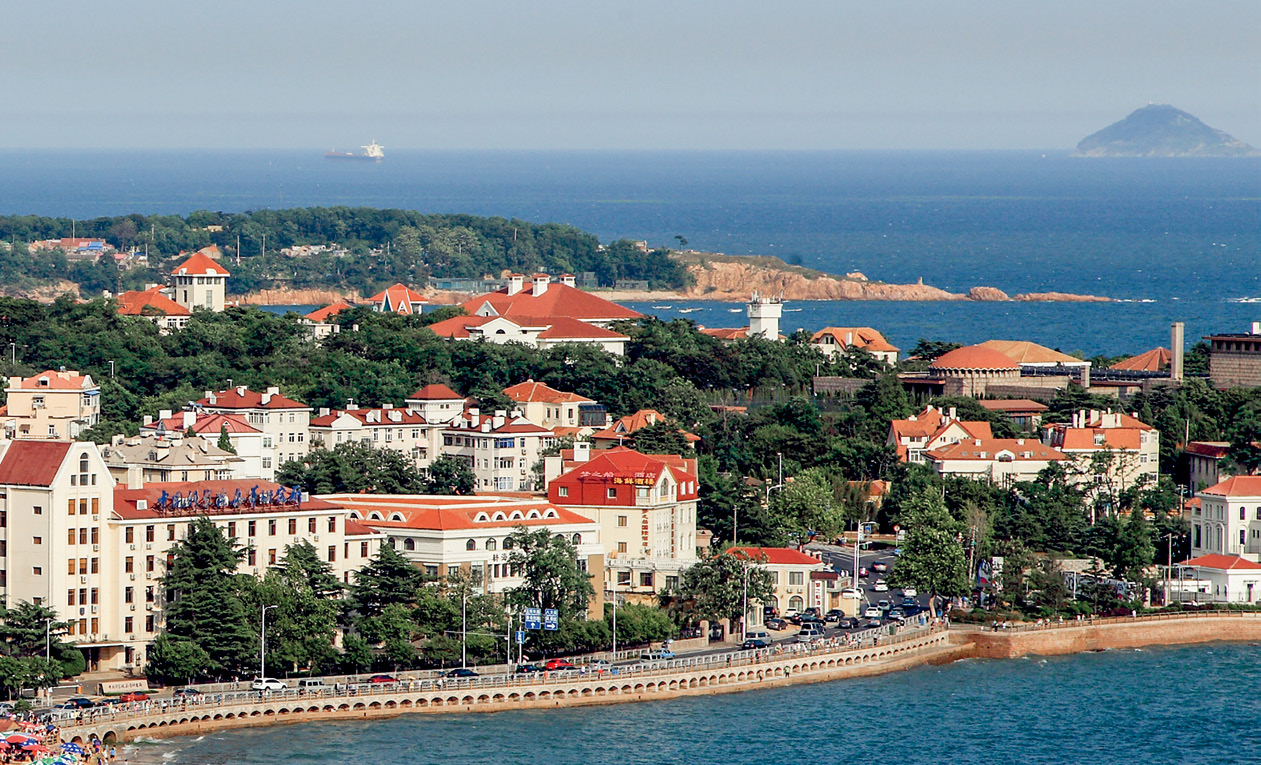

Dive into oceans in the pursuit of knowledge
Founded in 1950 in the coastal city of Qingdao, the Institute of Oceanology, Chinese Academy of Sciences (IOCAS) is China’s first ocean research institute. Bolstering marine science and technology is a national strategy to support China’s sustainable development goals, and IOCAS is leveraging its research strengths to drive multidisciplinary development in the field. During the 70-year anniversary of this research powerhouse, its director, Fan Wang, shares his vision and plans for a big science centre.
What led to the founding of IOCAS?
When the People's Republic of China was founded in 1949, modern oceanography research was almost unknown in the country. Driven by the need to investigate and exploit marine resources, renowned biologists TUNG T. C. Tung and TSENG C. K. proposed the establishment of Qingdao Marine Biology Laboratory at the CAS Institute of Hydrobiology in 1950, which was expanded to IOCAS in 1959, becoming China's cradle of marine science research. In its early days, IOCAS scientists played a key role in setting long-term plans for China’s marine science and industry development.
How do you explain IOCAS's strategic importance?
Marine science and technologies play a supporting role in socioeconomic development. Building knowledge about the ocean, to develop and preserve it, is a mission that guides our research. At IOCAS, our comprehensive research programmes target strategic national and social development needs. Committed to basic marine research, we integrate theories on coastal ocean environment evolution with technologies for the sustainable use of marine bio-resources and deep sea exploration. We aim to be a world-class, influential marine science institution, and to lead the development of marine science and technology in China.
Outline some noteworthy research at IOCAS that serves societal needs
Our innovations are grounded in cutting-edge science. Since the 1980s, we have studied ocean circulation in the West Pacific, and initiated the Northwestern Pacific Ocean Circulation and Climate Experiment (NPOCE), China's first large-scale international collaboration programme in oceanology, which enables improved understanding of the dynamics of ocean circulation and its impact on the global climate. Our research on the subduction of oceanic crust was published in Nature and Science, updating conventional knowledge about the causes of earthquakes.
Our studies on the mechanisms and evolution of marine ecological disasters have led to green technologies to protect marine environment, some of which are used internationally. Water treatment, oil spill remediation, and marine ranching technologies developed by us have contributed significantly to pollution control and marine ecosystem restoration. We have also revealed mechanisms underlying marine corrosion and fouling, and advanced corrosion protection technologies.
More direct economic benefits are brought by our contribution to seaweed, shrimp, and scallop farming, enabled by solving problems in genome analysis, germplasm innovation, healthy cultivation, and green processing technologies, boosting the mariculture industry.
What are your plans for IOCAS?
Oceanology is an interdisciplinary field, whose development demands large-scale facilities. In line with CAS's big science vision, we are constructing the Centre for Ocean Mega-Science (COMS). Using our marine research fleet, particularly the Kexue research vessel, and other facilities, we plan to develop three core research directions by furthering the integration between IOCAS and CAS's Yantai Institute of Coastal Zone Research (YICZR). These are multi-sphere interactions in Indo-Pacific Ocean, theories and applied technologies on ocean health, and marine life and sustainable development of biological resources. This will help address major issues in global climate change, ocean health, and the blue economy. We will also establish a College of Marine Science at the University of Chinese Academy of Sciences (UCAS) to enhance the integration of science and education and cultivate innovators.
How do the platforms of COMS support interdisciplinary research?
COMS will provide various platforms with advanced facilities to meet diverse needs of multidisciplinary marine research. These include a platform for managing our research fleet, a marine observation network with a data centre, a testing platform for systematic analysis of samples, and a facility for simulating marine systems. These platforms will enable collaborative research on the marine environment, the deep ocean, and marine life.
For instance, the project on multi-sphere interactions in Indo-Pacific Ocean has organized cross-disciplinary teams to explore the interactions between ocean circulation, climate change, tectonic movement, biodiversity, and marine environment, with the support of multiple platforms of COMS.
The construction of COMS also allows us to leverage the strengths of partner organizations to build R&D clusters on marine engineering and equipment, marine resource exploitation, and disaster control. We are working on selecting applicable studies for connection with industries for research commercialization. For now, we have launched programmes to develop users of our big science facilities, and have gathered multidisciplinary experts for joint translational research.
Why is a comprehensive marine observation network needed?
We established a network for comprehensive marine observation to obtain data on long-term changes in marine ecosystems, environment and bio-resources. As a key platform supporting COMS, the network has integrated four existing ecosystem observation stations and three buoy networks of IOCAS and YICZR, covering an extensive area from estuaries and bays, to the Yellow Sea, East China Sea and the West Pacific Ocean. The long-term and comprehensive observation will support in-depth research to improve our understanding on the evolution of the coastal ocean under the impacts of climate change and human activities.
How do you promote international collaboration?
Ocean science requires international collaboration. A world vision is integral to COMS, which is expected to make us part of the global innovation network, and promote our profile and influence. Based on the NPOCE project we initiated, COMS will lead the launch of new international projects in support of UN's plan for the Decade of Ocean Science for Sustainable Development, focusing on marine life, environment and global change.
Moreover, in line with China's "Belt and Road" initiative, we will enhance research collaboration with countries along the "Belt and Road". COMS will be an open platform for internationally-minded researchers.